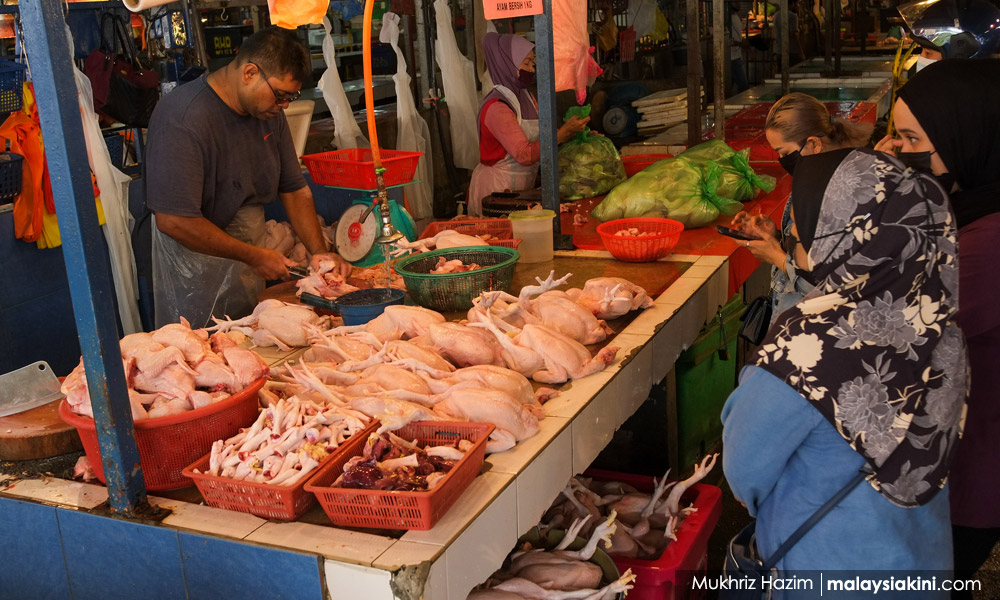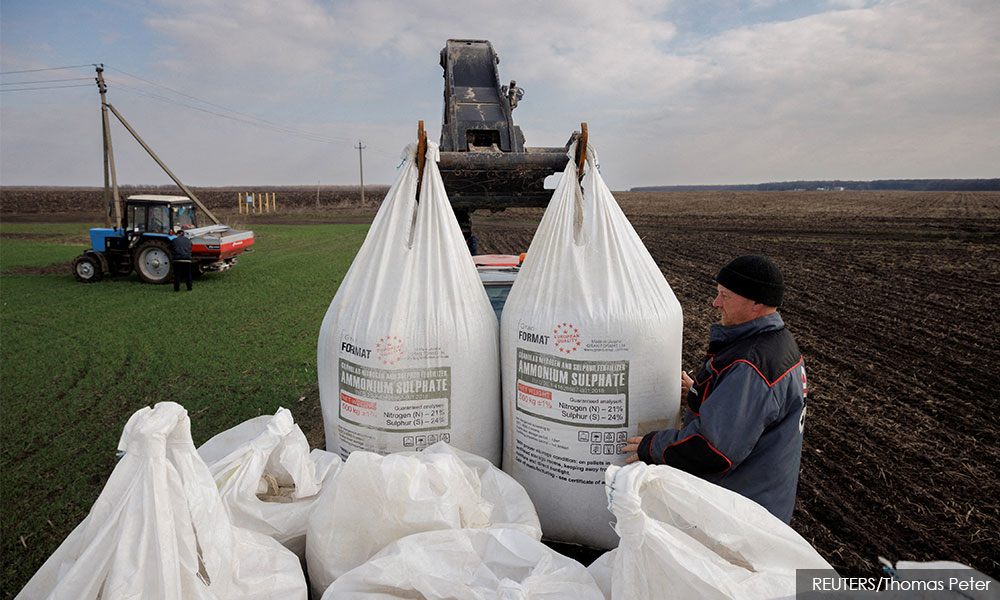More than four months have passed since Russia’s unprovoked invasion of Ukraine. The global consequences of this war of aggression know no borders.
Across the continents, hundreds of millions of people face a perfect storm of rapidly rising prices for energy, fertilisers and food, combined with the disruption of supply chains and broader macro-economic risks. As elsewhere, also in Malaysia, these factors pose severe risks for a successful post-Covid-19 economic recovery.
Therefore, I see a need to recall the reasons that triggered the current global food security crisis. The irrefutable fact is that Russia’s invasion is currently blocking 20 million tonnes of Ukrainian grain from world markets. This is creating big shortages and price increases on the international markets.
With Ukraine and Russia exporting nearly a third of the world’s wheat and more than 70 percent of sunflower oil, these actions cast a heavy toll on the most vulnerable populations in the Middle East, North and Sub-Saharan Africa and Asia.
Russia has effectively turned the Black Sea into a warzone. Russia’s actions have driven up freight and insurance costs to unaffordable levels. Russian taxes and quotas on its exports of wheat, rye, barley and corn also contribute to price rises.
Weaponising food security
Cynically, Russia is weaponising the issue of food security to hold the global community at ransom while blackmailing those who oppose its aggression. In this context, the European Union (EU) remains focused as we maintain our top priority of stopping the war.

Russian disinformation campaigns continue to spew propaganda, blaming sanctions from the EU and others as responsible for global food insecurity.
Let me formulate it very clearly: EU sanctions target the Russian government, its economic and financial systems, and its military elites responsible for the invasion of Ukraine. None of the EU’s six packages of sanctions prohibits Russia from exporting agricultural goods, nor do we create obligations for non-EU operators to follow suit.
With a looming catastrophe on hand, the EU will advance its position as a global actor to defend the collective rules-based framework while addressing the needs of partner countries.
In this way, the EU Food Security Response will incorporate the short- to medium-term needs of vulnerable populations while emphasising emergency relief.
We have pledged RM2.76 billion as part of our immediate relief efforts to ensure vulnerable nations can weather the crisis. RM690 million of this sum is allocated as humanitarian assistance to high-risk regions in Africa, the Caribbean and the Pacific, while RM1.6 billion will be spent on boosting sustainable food production in the long term.
Furthermore, EU initiatives to support global production and resilience include a concerted effort to promote effective usage and alternatives to fertilisers.
Building on this, the EU anchors these efforts in a multilateral context to ensure disruptions in the global trade of food supplies remain minimised.
Urgent action needed
However, urgent action is required to ensure that populations depending on Ukraine for agricultural products are able to access these supplies regardless of the continued Russian blockade.

To this end, the EU is assisting Ukrainian exports by returning millions of tonnes of grain back onto global markets via other routes through the “Solidarity Lanes Action Plan”.
Additionally, we are employing various long-term strategies to address the negative consequences of climate change on food security, such as degradation of fertile land, loss of biodiversity and increased risk of local agriculture production.
Looking forward, the EU aims to match the demand for long-term investments in food value chains through sustainable agricultural and ecological innovations.
Compounding this, the industry requires reform in areas of land governance and ought to provide smallholder farmers with access to green financing. It is only through these means that we are able to strengthen access to healthy foods while reducing our dependence on fossil fuels.
The EU stands ready to accompany Malaysia on this path of jointly developing new strategies for sustainable and secure food structures.
MICHALIS ROKAS is the European Union Ambassador to Malaysia.
The views expressed here are those of the author/contributor and do not necessarily represent the views of MMKtT.




No comments:
Post a Comment
Note: Only a member of this blog may post a comment.